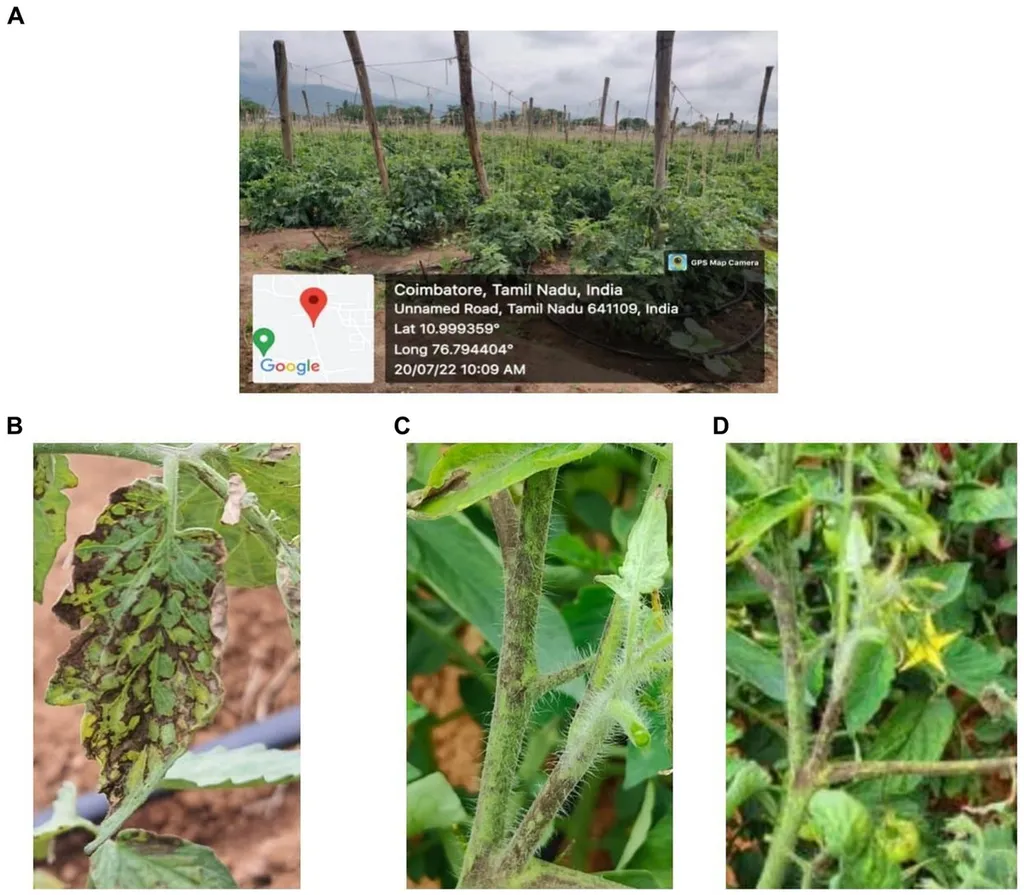In the relentless pursuit of sustainable agriculture, a groundbreaking study has emerged, offering a promising solution to a devastating viral disease in tomato and cowpea crops. The research, led by R. Sharanya from the Department of Plant Pathology at Tamil Nadu Agricultural University in Coimbatore, India, focuses on the antiviral potential of a bacterium called Serratia marcescens NMS01. The findings, published in the Journal of Agriculture and Food Research (translated as ‘Journal of Agriculture and Food Research’), could significantly impact the agricultural sector, particularly in regions where groundnut bud necrosis virus (GBNV) poses a substantial threat to crop yields.
GBNV, a member of the Orthotospovirus arachinecrosis group, causes leaf and bud necrosis in tomato plants, leading to severe yield losses. Traditional methods of controlling this virus have proven ineffective, prompting researchers to explore innovative biological control strategies. Enter S. marcescens NMS01, a bacterium with a unique ability to induce antiviral immunity in plants.
The study revealed that tomato seedlings treated with S. marcescens NMS01 exhibited delayed symptom onset and a significant reduction in disease incidence. “The treated plants showed a substantial decrease in viral load, as evidenced by DAC-ELISA and qPCR results,” Sharanya explained. The virus titer in treated plants was remarkably lower compared to untreated controls, indicating the bacterium’s potent antiviral activity.
Gene expression analysis further supported these findings, showing the upregulation of key defense genes in NMS01-treated plants. This suggests that S. marcescens NMS01 triggers a robust immune response in plants, enhancing their resistance to GBNV. Genome analysis confirmed the safety of this bacterium, as it lacks human pathogenic genes, making it an ideal candidate for biocontrol applications.
The study also identified several genes in S. marcescens NMS01 involved in the production of antimicrobial and immunomodulatory metabolites. These compounds could play a crucial role in the bacterium’s ability to induce antiviral immunity in plants. Pan-genome analysis revealed a diverse genetic repertoire in NMS01, including unique genes that contribute to its biocontrol potential.
Under field conditions, the treated plants demonstrated improved growth and lower disease incidence compared to untreated controls. This translates to a significant boost in crop productivity, which is a game-changer for farmers grappling with GBNV. “The potential of S. marcescens NMS01 as a biocontrol agent is immense,” Sharanya noted. “It offers a sustainable and eco-friendly solution to manage GBNV and enhance tomato productivity.”
The implications of this research extend beyond the agricultural sector. As the world grapples with the challenges of climate change and food security, innovative solutions like S. marcescens NMS01 offer a glimmer of hope. By harnessing the power of beneficial microbes, we can pave the way for a more sustainable and resilient agricultural future.
This study not only sheds light on the potential of S. marcescens NMS01 as a biocontrol agent but also opens up new avenues for research in the field of plant-microbe interactions. As we delve deeper into the intricate world of microbes, we unlock the potential to revolutionize agriculture and secure our food supply for generations to come. The journey towards sustainable agriculture is fraught with challenges, but with each discovery, we take a step closer to a greener, more resilient future.

